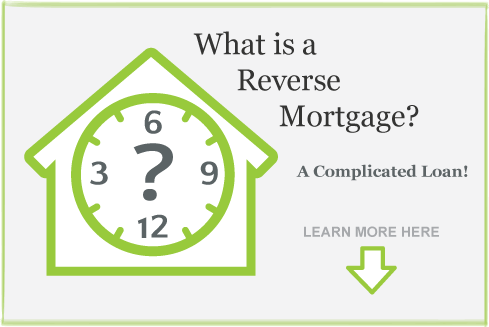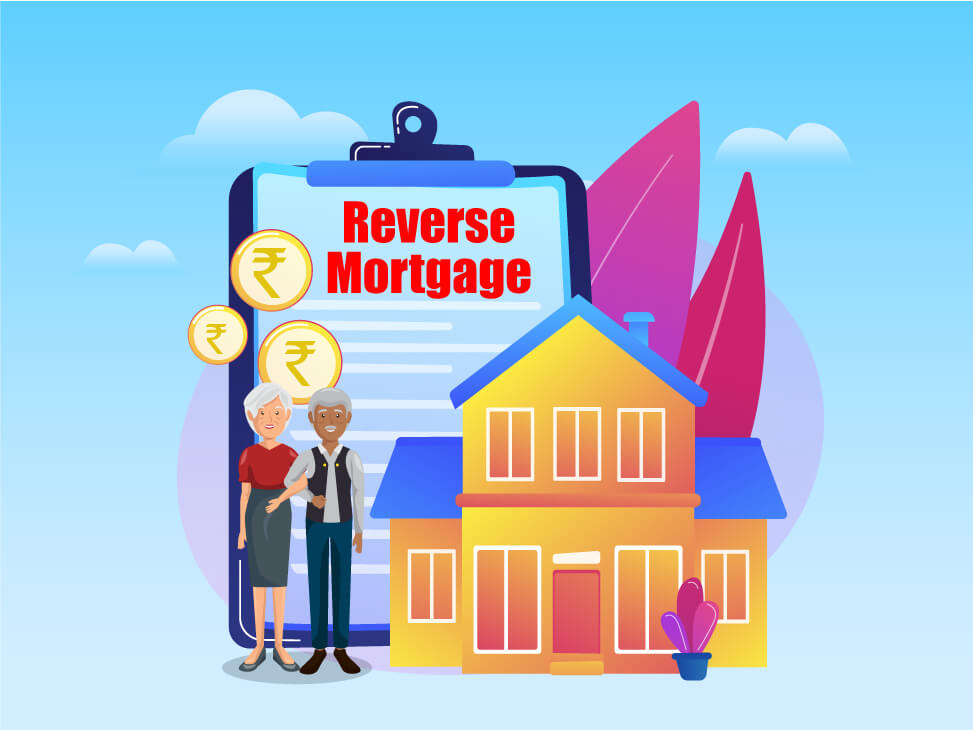How to Purchase Reverse Mortgage and Unlock Your Home’s Equity
Wiki Article
Empower Your Retired Life: The Smart Way to Purchase a Reverse Mortgage
As retired life techniques, numerous people seek reliable methods to enhance their monetary independence and health. Among these approaches, a reverse home loan arises as a feasible option for home owners aged 62 and older, enabling them to touch into their home equity without the need of monthly settlements. While this financial device offers a number of advantages, including raised capital and the potential to cover crucial costs, it is critical to understand the ins and outs of the application procedure and essential factors to consider included. The following steps may disclose how you can make a well-informed choice that can considerably affect your retired life years.Recognizing Reverse Home Mortgages
Understanding reverse mortgages can be essential for home owners looking for monetary flexibility in retired life. A reverse mortgage is a financial product that allows qualified home owners, typically aged 62 and older, to convert a portion of their home equity into money. Unlike standard home loans, where debtors make regular monthly repayments to a lending institution, reverse mortgages make it possible for home owners to obtain settlements or a lump sum while retaining possession of their home.
The amount offered with a reverse mortgage relies on numerous aspects, consisting of the home owner's age, the home's worth, and present rate of interest rates. Notably, the finance does not need to be repaid up until the home owner offers the home, leaves, or dies.
It is important for potential consumers to comprehend the implications of this economic product, consisting of the effect on estate inheritance, tax factors to consider, and ongoing duties associated to residential property maintenance, tax obligations, and insurance. In addition, counseling sessions with certified specialists are typically called for to make sure that borrowers completely comprehend the terms and problems of the lending. On the whole, a complete understanding of reverse mortgages can encourage homeowners to make educated choices regarding their economic future in retirement.
Benefits of a Reverse Home Mortgage
A reverse mortgage uses several engaging advantages for eligible property owners, specifically those in retirement. This monetary tool enables elders to convert a part of their home equity into cash money, providing essential funds without the need for regular monthly home mortgage settlements. The cash acquired can be made use of for various functions, such as covering clinical expenses, making home enhancements, or supplementing retired life revenue, thus improving total economic flexibility.One substantial benefit of a reverse mortgage is that it does not require repayment up until the house owner vacates, offers the home, or dies - purchase reverse mortgage. This attribute makes it possible for senior citizens to keep their way of living and fulfill unanticipated prices without the worry of monthly settlements. Furthermore, the funds gotten are usually tax-free, allowing property owners to use their cash without fear of tax obligation implications
Moreover, a reverse home loan can supply comfort, understanding that it can function as a financial safeguard throughout difficult times. Property owners additionally preserve possession of their homes, ensuring they can continue staying in an acquainted atmosphere. Ultimately, a reverse home mortgage can be a critical economic source, equipping retirees to handle their financial resources efficiently while enjoying their gold years.
The Application Process
Navigating the application procedure for a reverse mortgage is a vital action for house owners considering this monetary option. The initial phase includes assessing eligibility, which typically calls for the house owner to be at the very least 62 years old, own the building outright or have a low home mortgage balance, and occupy the home as their main residence.As soon as eligibility is confirmed, home owners need to undergo a counseling session with a HUD-approved therapist. This session guarantees that they totally comprehend the effects of a reverse mortgage, consisting of the responsibilities included. purchase reverse mortgage. After completing counseling, candidates can continue to gather find out here needed documentation, including evidence of income, assets, and the home's worth
The following action entails submitting an application to a lending institution, who will certainly examine the monetary and home certifications. An appraisal of the home will certainly additionally be conducted to identify its market worth. If accepted, the lender will provide loan terms, which ought to be examined meticulously.
Upon acceptance, the closing process complies with, where last papers are authorized, and funds are disbursed. Comprehending each stage of click this this application procedure can dramatically enhance the property owner's confidence and decision-making relating to reverse home mortgages.

Key Considerations Prior To Buying
Getting a reverse home mortgage is a significant financial decision that calls for mindful factor to consider of a number of essential elements. Recognizing your eligibility is essential. Homeowners must go to least 62 years old, and the home has to be their key home. Evaluating your economic needs and objectives is similarly essential; identify whether a reverse home mortgage lines up with your long-term strategies.
A reverse home mortgage can influence your qualification for particular federal government benefits, such as Medicaid. By thoroughly evaluating these factors to consider, you can make an extra educated decision about whether a reverse home mortgage is the ideal monetary strategy for your retired life.
Maximizing Your Funds
When you have safeguarded a reverse home mortgage, successfully managing the funds becomes a top priority. The versatility of a reverse home mortgage enables property owners to utilize the funds in different methods, yet calculated preparation is vital to optimize their benefits.One essential technique is to develop a budget that details your regular monthly expenditures and monetary goals. By recognizing required expenditures such as health care, building taxes, and home upkeep, you can assign funds as necessary to guarantee lasting sustainability. Additionally, take into consideration using a part of the funds for investments that can produce revenue or appreciate gradually, such as mutual funds or dividend-paying stocks.
An additional important element is to keep an emergency fund. Reserving a reserve from your reverse home loan can aid cover unexpected expenses, giving comfort and monetary security. In addition, consult with a monetary expert to explore possible tax effects and just how to integrate reverse mortgage funds into your general retired life strategy.
Ultimately, prudent management of reverse home loan funds can improve your monetary protection, permitting you to enjoy your retired click for source life years without the stress of financial uncertainty. Careful planning and informed decision-making will certainly ensure that your funds work effectively for you.
Conclusion
To conclude, a reverse home mortgage presents a practical financial approach for seniors seeking to enhance their retirement experience. By converting home equity into available funds, individuals can address crucial expenditures and secure additional funds without sustaining monthly repayments. However, careful factor to consider of the connected implications and terms is vital to make best use of advantages. Inevitably, leveraging this monetary tool can facilitate greater freedom and improve total high quality of life during retired life years.Understanding reverse home loans can be crucial for house owners seeking monetary flexibility in retired life. A reverse mortgage is a monetary item that allows eligible home owners, usually aged 62 and older, to convert a part of their home equity into cash. Unlike typical home mortgages, where customers make monthly repayments to a lending institution, reverse mortgages make it possible for house owners to obtain payments or a lump amount while preserving possession of their property.
In general, a complete understanding of reverse home mortgages can encourage home owners to make educated choices concerning their economic future in retired life.
Seek advice from with a monetary consultant to check out possible tax effects and just how to incorporate reverse mortgage funds into your overall retirement strategy.
Report this wiki page